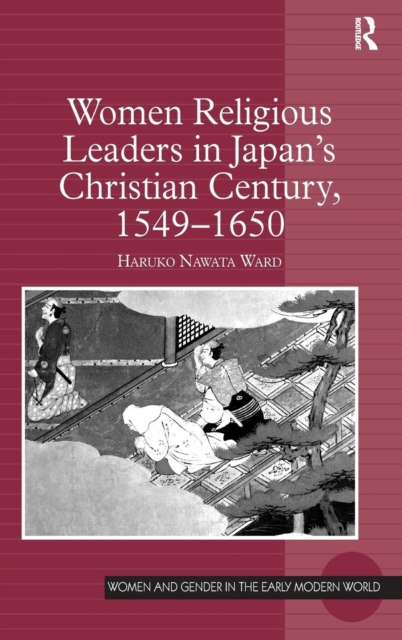
Women Religious Leaders in Japan's Christian Century, 1549-1650 Hardback
by Haruko Nawata Ward
Part of the Women and Gender in the Early Modern World series
Hardback
Description
Meticulously researched and drawing on original source materials written in eight different languages, this study fills a lacuna in the historiography of Christianity in Japan, which up to now has paid little or no attention to the experience of women. Focusing on the century between the introduction of Christianity in Japan by Portuguese Jesuit missionaries in 1549 and the Japanese government's commitment to the eradication of Christianity in the mid-seventeenth century, this book outlines how women provided crucial leadership in the spread, nurture, and maintenance of the faith through various apostolic ministries. The author's research on the religious backgrounds of women from different schools of late medieval Japanese Shinto-Buddhism sheds light on individual women's choices to embrace or reject the Reformed Catholicism of the Jesuits, and explores the continuity and discontinuity of their religious expressions. The book is divided into four sections devoted to an in-depth study of different types of apostolates: nuns (women who took up monastic vocations), witches (the women leaders of the Shinto-Buddhist tradition who resisted Jesuit teachings), catechists (women who engaged in ministries of persuasion and conversion), and sisters (women devoted to missions of mercy).
Analyzing primary sources including Jesuit histories, letters and reports, especially LuÃs Fróis' História de Japão, hagiography and family chronicles, each section provides a broad understanding of how these women, in the context of misogynistic society and theology, utilized resources from their traditional religions to new Christian adaptations and specific religio-social issues, creating unique hybrids of Catholicism and Buddhism. The inclusion of Portuguese, Spanish, Italian, and Japanese texts, many available for the first time in English, and the dramatic conclusion that women were largely responsible for the trajectory of Christianity in early modern Japan, makes this book an essential reading for scholars of women's history, religious history, history of Christianity, and Asian history.
Information
-
Out of stock
- Format:Hardback
- Pages:422 pages
- Publisher:Taylor & Francis Ltd
- Publication Date:23/03/2009
- Category:
- ISBN:9780754664789
Other Formats
- EPUB from £35.99
- PDF from £35.99
Information
-
Out of stock
- Format:Hardback
- Pages:422 pages
- Publisher:Taylor & Francis Ltd
- Publication Date:23/03/2009
- Category:
- ISBN:9780754664789










